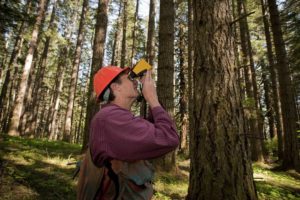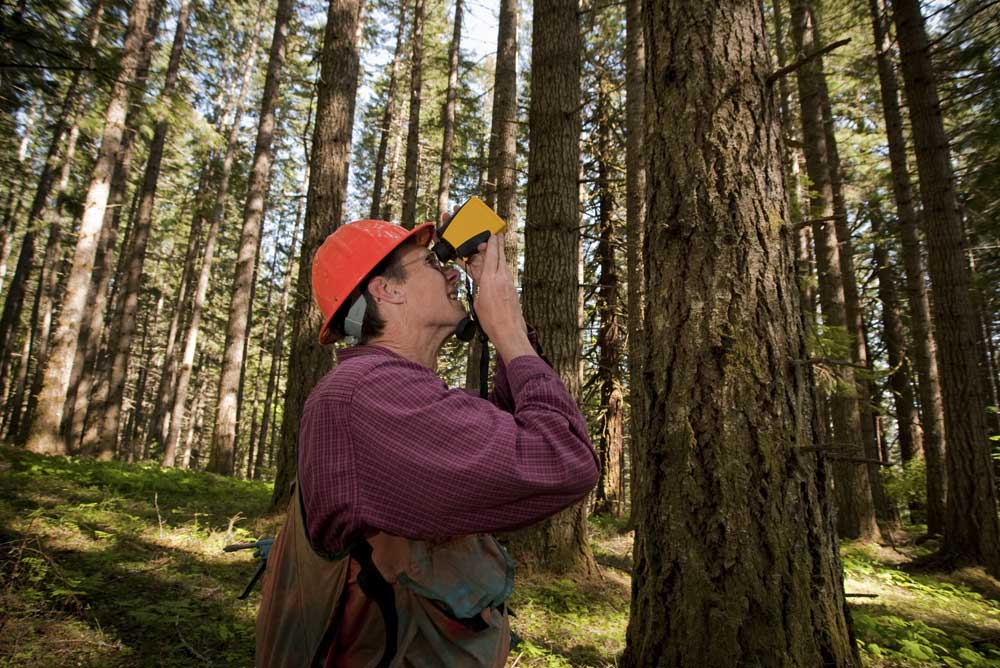Disclaimer: The information on our website is provided for general information purposes only. We make no representations or warranties of any kind, express or implied, about the completeness, accuracy, reliability, suitability or availability with respect to the website or the information contained on our website for any purpose. Any reliance on such information is therefore strictly at your own risk and we are not liable for any damages or losses arising out of or resulting from your reliance on any information contained on our website.
If you’ve ever dreamed of having a job where your office is the great outdoors and your daily tasks revolve around nature, becoming a forester might be the perfect fit for you. But how does one go about entering this fascinating field? Let’s embark on a journey to discover the steps to become a forester.
How to Become a Forester

Before diving into the steps, it’s important to understand the role. A forester is responsible for managing forests, ensuring they remain healthy and vibrant. They oversee tree planting, control pests, and protect against fires. They also work with wildlife experts and conservationists to maintain the balance of the ecosystem. In short, they are the caretakers of our precious woodlands! Next, let’s review the steps to becoming a forester.
- Passion for Nature: Having a love and respect for the outdoors and the environment is the starting point. This will motivate and guide you throughout your journey.
- Education: Start with a high school diploma. Then, pursue a bachelor’s degree in forestry, environmental science, or a related field. Many colleges offer specialized programs that provide the necessary knowledge and skills.
- Internships: During or after college, seek internships in forestry. This hands-on experience will give you a feel for the job and can be invaluable when seeking full-time employment.
- Get Licensed: Some states require foresters to have a license. This might involve passing an exam, having a degree in the field, or gaining some work experience.
- Stay Updated: Nature is ever-changing, and so are the techniques and knowledge in forestry. Regularly attend workshops, webinars, or conferences to stay current.
- Develop Soft Skills: Besides technical knowledge, a forester should have good communication skills, be a problem-solver, and work well in teams. This helps when working with communities, other professionals, or educating the public.
Choosing a career in forestry isn’t just about the paycheck. It’s about making a positive impact on the environment and ensuring that future generations can enjoy our natural spaces. Becoming a forester is a journey that blends education with a passion for the environment. As a forester, you’ll have the privilege of safeguarding our forests, ensuring they remain a thriving and vital part of our ecosystem. If you’re someone who cherishes the great outdoors and wants to make a difference, a career in forestry awaits!
Job Description of a Forester
Imagine having a job where your office is a vast, beautiful forest. Sounds dreamy, right? Well, that’s the daily life of a forester! But being a forester isn’t just about enjoying the beauty of the woods; it’s about being nature’s guardian. Let’s explore the essential tasks a forester performs and understand why their role is so crucial.
- Tree Care and Health: Foresters ensure our forests remain healthy. They look out for diseases or pests that might harm the trees, and they help develop strategies to combat these issues.
- Planning for the Future: A forest isn’t just about the trees we see today; it’s also about the ones that will grow tomorrow. Foresters decide where, when, and what types of trees to plant, ensuring a balanced and diverse forest.
- Conservation: Our forests are home to countless animals and plants. Foresters ensure these habitats are protected. They work to keep the environment safe, making sure wildlife can thrive.
- Resource Management: Forests provide us with valuable resources like timber and paper. Foresters help manage these resources sustainably, ensuring we have what we need without harming the forest’s long-term health.
- Educating Others: Foresters often work with local communities, schools, or other groups to teach them about the importance of forests. They share their knowledge, helping others understand and respect the environment.
- Safety First: Forests can sometimes pose dangers, such as wildfires. A forester works on preventing these risks, and if a fire does start, they help in coordinating efforts to control it.
Forests play a vital role in our planet’s health. They clean our air, provide habitats for animals, and offer us peaceful places to relax and play. Without foresters, our forests might not be managed correctly, leading to imbalances in the environment. By overseeing the growth and health of trees and plants, foresters ensure that these green spaces remain vibrant and beneficial for everyone.
Free Teacher and Student Resources
The state of Oregon has a list of free resources for educators on their Forestry for Teachers webpage. For students, the U.S. Forestry Service has a list of fun activities and learning resources on their kid’s page.
Article Citations
Bureau of Labor Statistics, U.S. Department of Labor, Occupational Outlook Handbook, Conservation Scientists and Foresters and Occupational Employment and Wages
National Center for O*NET Development. 19-1032.00. O*NET OnLine. This page includes information from O*NET OnLine by the U.S. Department of Labor, Employment and Training Administration (USDOL/ETA). Used under the CC BY 4.0 license. O*NET® is a trademark of USDOL/ETA. RethinkOldSchool, Inc. has modified all or some of this information. USDOL/ETA has not approved, endorsed, or tested these modifications.

